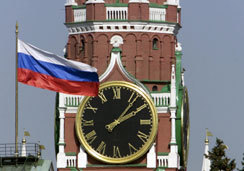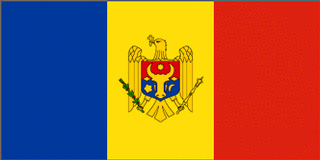The euro fell against the dollar on speculation reports this week will signal a second quarter of economic contraction in Germany
Published:
8 January 2002 y., Tuesday
The euro fell against the dollar on speculation reports this week will signal a second quarter of economic contraction in Germany, the largest economy in the 12-nation currency region.
The number of unemployed Germans rose last month and industrial production declined in November, the government is expected to say. The statistics contrast with U.S. employment figures and a report on the service sector last week that signaled the world's largest economy is rebounding.
Europe's common currency dropped to 89.32 U.S. cents, from 89.50 late Friday in New York. It earlier fell to 88.86 cents. Against Japan's currency, it traded at 117.14 yen compared with 117.12. The yen traded at 131.05 per dollar, compared with 131.03 Friday.
Europe's common currency slid 2.4 percent in the last three months of 2001 after Germany's economy contracted for the first time in more than two years during the third quarter. Economists say it probably shrank further in the fourth quarter.
The December unemployment rate rose to 9.6 percent, according to a poll of economists by Bloomberg News. That would be its highest since May 2000. Separately, indexes of confidence in the euro nations' economies are expected to show declines for December when they are released tomorrow.
Šaltinis:
bloomberg.com
Copying, publishing, announcing any information from the News.lt portal without written permission of News.lt editorial office is prohibited.
The most popular articles
 The European Commission approved an application from Spain for assistance from the EU Globalisation Adjustment Fund (EGF).
more »
The European Commission approved an application from Spain for assistance from the EU Globalisation Adjustment Fund (EGF).
more »
 The European Commission today reiterated the potential of existing EU-rules on mediation in cross-border legal disputes, reminding Member States that these measures can only be effective if put in place by Member States at national level.
more »
The European Commission today reiterated the potential of existing EU-rules on mediation in cross-border legal disputes, reminding Member States that these measures can only be effective if put in place by Member States at national level.
more »
 Exports of animals and animal products from the European Union to Russia are expected to receive a boost after five new certificates for exports between the EU and the Russian Federation entered into force on August 15.
more »
Exports of animals and animal products from the European Union to Russia are expected to receive a boost after five new certificates for exports between the EU and the Russian Federation entered into force on August 15.
more »
 World Bank Group President Robert B. Zoellick visited Moldova on August 11-12 at the invitation of Prime Minister Vlad Filat.
more »
World Bank Group President Robert B. Zoellick visited Moldova on August 11-12 at the invitation of Prime Minister Vlad Filat.
more »
 These are the financial results of the banking activities of the Danske Bank Group in Lithuania (Danske Bankas and Danske Lizingas UAB).
more »
These are the financial results of the banking activities of the Danske Bank Group in Lithuania (Danske Bankas and Danske Lizingas UAB).
more »
 The European Investment Bank (EIB) today signed its first loan agreement with Armenia.
more »
The European Investment Bank (EIB) today signed its first loan agreement with Armenia.
more »
 Given the worsening food crisis in the Sahel, the Commission today agreed to disburse €14.9 million for food security in Niger, the worst affected country in the area.
more »
Given the worsening food crisis in the Sahel, the Commission today agreed to disburse €14.9 million for food security in Niger, the worst affected country in the area.
more »
 The European Commission has cleared under the EU Merger Regulation the proposed restructuring of Arnotts' debts in return for a transfer of control to Anglo Irish Bank and Royal Bank of Scotland (RBS).
more »
The European Commission has cleared under the EU Merger Regulation the proposed restructuring of Arnotts' debts in return for a transfer of control to Anglo Irish Bank and Royal Bank of Scotland (RBS).
more »
 The European Commission today approved a new financial support package of €135 million for Morocco.
more »
The European Commission today approved a new financial support package of €135 million for Morocco.
more »
 The European Commission is allocating an extra €10 million in humanitarian aid for Liberia.
more »
The European Commission is allocating an extra €10 million in humanitarian aid for Liberia.
more »